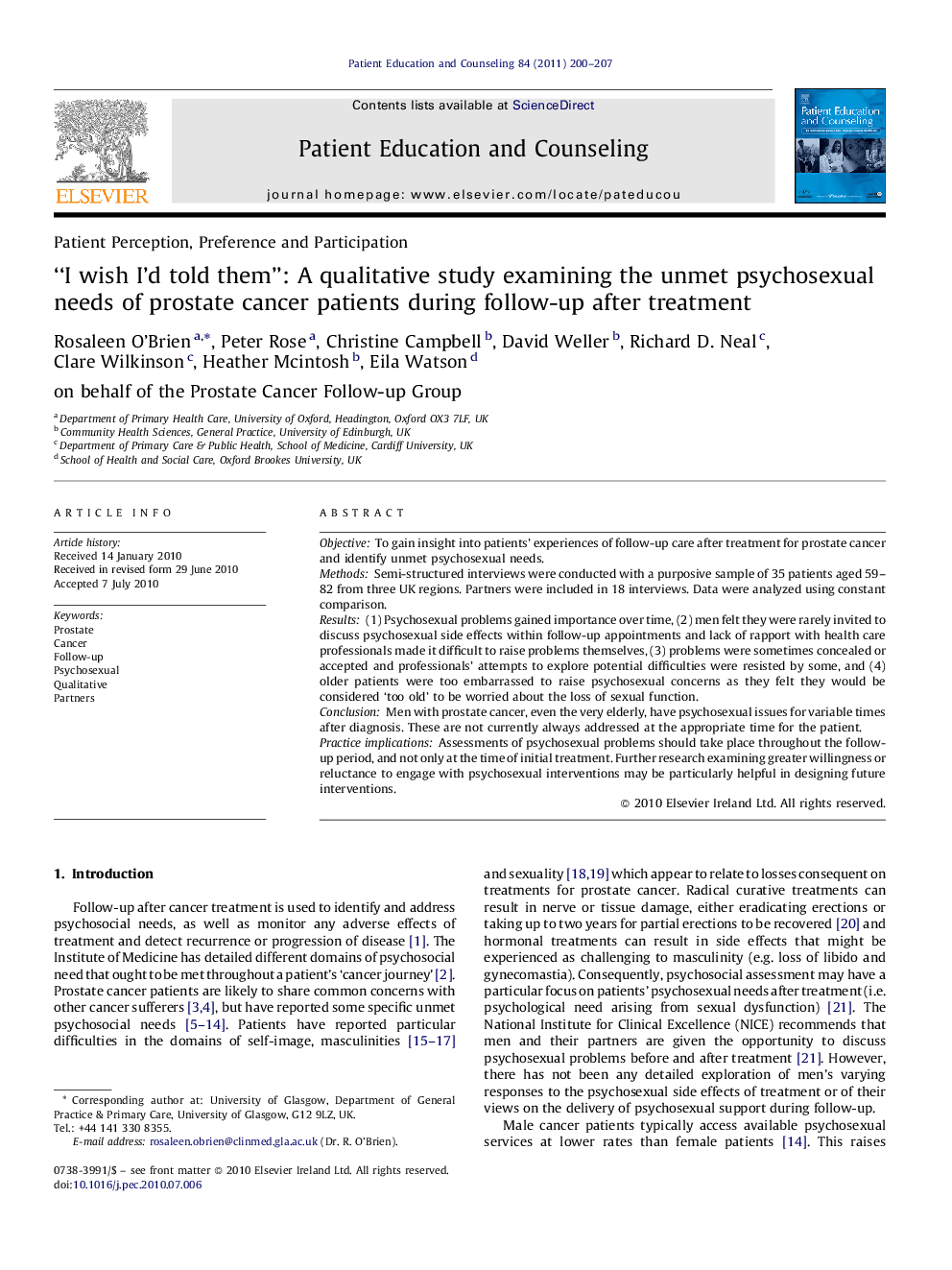| Article ID | Journal | Published Year | Pages | File Type |
|---|---|---|---|---|
| 3814398 | Patient Education and Counseling | 2011 | 8 Pages |
ObjectiveTo gain insight into patients’ experiences of follow-up care after treatment for prostate cancer and identify unmet psychosexual needs.MethodsSemi-structured interviews were conducted with a purposive sample of 35 patients aged 59–82 from three UK regions. Partners were included in 18 interviews. Data were analyzed using constant comparison.Results(1) Psychosexual problems gained importance over time, (2) men felt they were rarely invited to discuss psychosexual side effects within follow-up appointments and lack of rapport with health care professionals made it difficult to raise problems themselves, (3) problems were sometimes concealed or accepted and professionals’ attempts to explore potential difficulties were resisted by some, and (4) older patients were too embarrassed to raise psychosexual concerns as they felt they would be considered ‘too old’ to be worried about the loss of sexual function.ConclusionMen with prostate cancer, even the very elderly, have psychosexual issues for variable times after diagnosis. These are not currently always addressed at the appropriate time for the patient.Practice implicationsAssessments of psychosexual problems should take place throughout the follow-up period, and not only at the time of initial treatment. Further research examining greater willingness or reluctance to engage with psychosexual interventions may be particularly helpful in designing future interventions.
